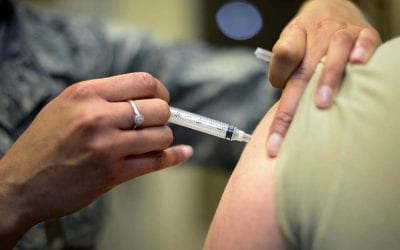My wife and I have flown to Europe many times. It’s normally an overnight flight. I always sleep most of the flight, while she’s up all night and very tired on our first day, but she persists and is a real sport.
I’ve been looking into how to help her get some sleep for an upcoming trip. Maybe some of these suggestions will help you sleep, so you arrive refreshed and ready for sightseeing without nodding-off by early afternoon.
• For most travelers, this option is too expensive, but you may be able use frequent flier miles for it. Consider flying business class (BC). BC seats are wider and recline much further than economy seats. US Airways’ A330 BC seats recline almost flat. You can really lie down comfortably on them to promote you sleeping.
• Don’t hestitate to recline your seat, but be mindful of the person sitting behind you. Warn them and don’t recline at light speed.
• Book the right seat for your flights. You can lean on the wall to help you sleep at a window seat, and a window seat has the advantage that if someone else in your row needs to use the lavatory, they won’t have to disturb you.
• Avoid bulkhead seats where you often find families traveling with babies and young kids.
• Don’t sit in the last row, as these seats often don’t recline much, if at all.
• The further forward you sit, the further you’ll be away from engine noise, which can really help you get some sleep.
• Exit rows give you more legroom, but generally aren’t able to put the seat arms up if the seat next to you is empty. These seats are often narrower, to accommodate the seat tray in the arm rests. To me, the legroom, so I can stretch out, more than compensates for the negatives of an exit row.
• Check SeatGuru.com before booking any seat to help you determine its specific pluses and minuses.
• Wear loose clothing so you won’t feel constricted, and wear layers so you can add or remove them depending on the temperature on the plane.
• Don’t consume caffeine for at least four hours before and during your flight; coffee, tea, cola. The Candian Centre for Addiction and Mental Health, says it takes 4½ hours or more for your body to metabolize caffeine.
• Don’t drink alcohol for at least four hours before or during your flight. The National Sleep Foundation says it prevents and disturbs sleep.
• Airplane’s keep their relative humidity at very low levels. You can quickly dehydrate and get “dry mouth,” and be uncomfortable during the flight. You’ll need to drink liquids during the flight to combat that. Personally I generally drink water, orange juice or tomato juice inflight.
• While some so no, consider taking off your shoes or loosening your laces to combat the effects of low cabin air pressure which make your feet swell.
• The WebMD Health Professional Network recommends blocking out “external stimulation” to help you sleep. You can increase comfort while flying, and decrease noise and light by:
1. Using a sleep mask to block out light.
2. Using earplugs to block out a great deal of the noise from the plane and cabin.
3. Using a neck pillow, or if you don’t have one, snagging an airline pillow, if available.
4. Using blanket to help your comfort. I bring my own, but you might be able to get one from the airline. If you use a blanket, make sure you connect your seat belt on top of it to avoid a flight attendant waking you to check to see it’s fastened.
• I use a noise-canceling headset with my iPod to enhance my music and video enjoyment while flying. Instead of using earplugs when I sleep, I keep my noise-canceling headset on. I find it’s more effective in drowning out engine and cabin noise than foam earplugs.
• During a long flight, flight attendants may often offer beverages and sometimes food or snacks during the flight. Your seat mate may be bored and want to talk. If you prefer to sleep:
1. Politely let your seat mate know you’re going to try to sleep.
2. Tell the flight attendant not to wake you for beverages, meals and snacks.
3. If you get a meal on your flight, ask the flight attendant to hold it for you until you awaken, if possible.
• On long flights waking up can be a bummer. I set my watch alarm to awaken me 45 minutes before landing. That gives me time to get to the lavatory, tidy myself, fill out any necessary forms, gather my gear and actually wake up.
Pleasant dreams.
After many years working in corporate America as a chemical engineer, executive and eventually CFO of a multinational manufacturer, Ned founded a tech consulting company and later restarted NSL Photography, his photography business. Before entering the corporate world, Ned worked as a Public Health Engineer for the Philadelphia Department of Public Health. As a well known corporate, travel and wildlife photographer, Ned travels the world writing about travel and photography, as well as running photography workshops, seminars and photowalks. Visit Ned’s Photography Blog and Galleries.

